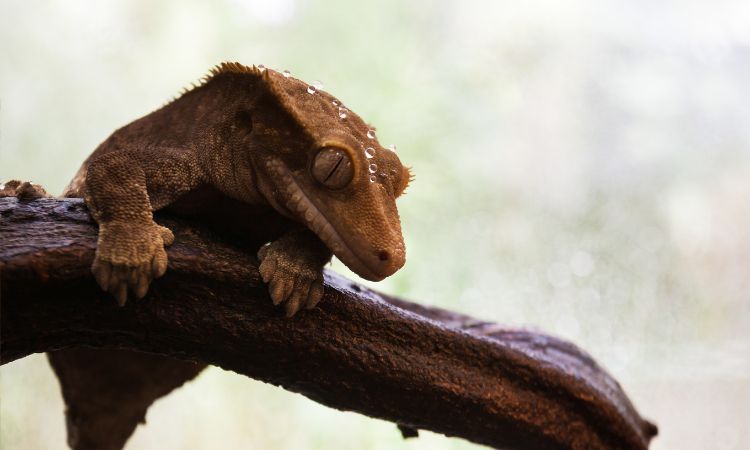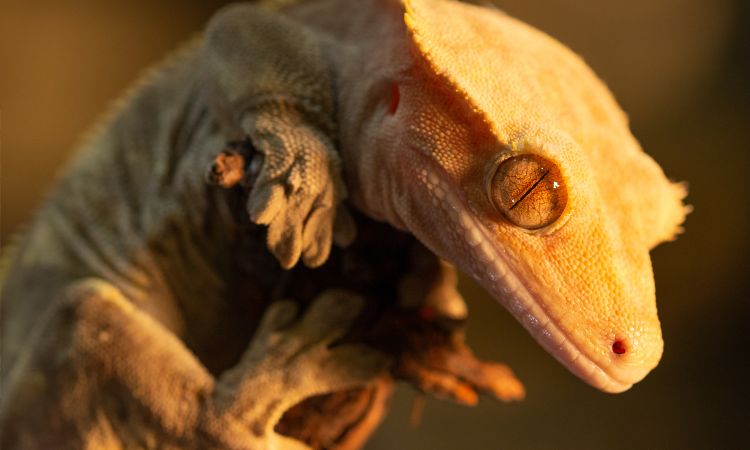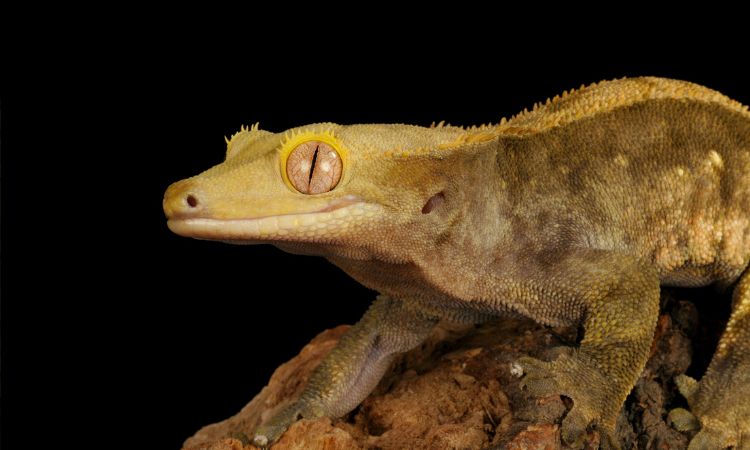As a gecko owner, you may be wondering if mold is something you should worry about. After all, crested geckos are very sensitive to their environment. Mold can certainly be harmful to your gecko, but there are ways to prevent it from becoming a problem. Keep reading to learn more about mold and how to keep your crested gecko safe from it!
Mold and your crested gecko
Mold is a common problem for pet owners, and it can be especially concerning when it comes to your crested gecko. While mold can cause serious health issues in humans, does the same hold true for reptiles? The answer is yes and no.
Mold spores are airborne and can be found anywhere, including in the cage of your crested gecko. Exposure to mild levels of mold growth may not have an immediate detrimental effect on your pet’s health but over time, continued exposure could lead to respiratory infections or even death. Mold growth is indicative of a larger problem such as high humidity levels or poor ventilation within their enclosure; both of which should be addressed immediately by adjusting these factors.
Is mold harmful to crested geckos?
Unfortunately, mold can have serious consequences for the health and wellbeing of many types of pets. Crested geckos are no exception, as mold has the potential to cause some major issues for them. So the question remains, will mold hurt your crested gecko?
The answer is yes. Mold, or more specifically fungi, can affect your crested gecko’s airways and lungs if inhaled. It can also cause skin irritation if it contacts their body directly. In addition to physical symptoms, breathing in mold spores may weaken the immune system of your crested gecko over time due to prolonged exposure. If left unchecked, this could lead to more severe illnesses such as pneumonia or even death in extreme cases.

What is mold and why does it grow?
Mold is a type of fungus that can grow on food and other surfaces, predominantly in damp environments. Mold is actually very resilient and finds its way even in areas where it’s difficult for geckos to thrive, such as hot, dry climates.
Mold’s growth is encouraged by the presence of microorganisms which provide moisture that the mold needs to create its characteristic web-like threads. In extreme cases, mold growth can spoil food completely and cause acute illness if ingested.
To keep it at bay, materials suspected to have mold should be regularly inspected and disposed of if required. Ultimately, keeping an eye on any potential breeding grounds will help with prevention – geckos are particularly fond of getting rid of small pests like molds – and protecting your food against decay!
How mold can affect your crested gecko’s health
Mold is a common problem for pet crested geckos and can have an adverse effect on their health if left unchecked. The mold can cause respiratory infections which could lead to further illnesses that compromise the gecko’s immune system.
In addition, the mold can produce mycotoxins, which are toxic and hazardous to your crested gecko’s health. Regularly monitoring and cleaning your gecko’s habitat is essential to prevent the build up of mold that could negatively impact its wellbeing.
Cleaning your gecko’s habitat with mild soap and warm water can help keep mold away, while also providing a safe environment where it can thrive.

What you should do if you find mold on your crested gecko’s food
If you are a crested gecko owner then you should be aware of the dangers of mold with regard to your pet. Mold can form in crested gecko food if it is stored for too long and it’s important to throw out molds as soon as you spot them.
If you notice mold on your gecko’s food, it’s recommended that you discard the old food and immediately purchase fresh food for your gecko to eat instead.
Be sure not to feed any moldy gecko food to ensure their health and safety. Lastly, always keep their living space clean and dry to prevent further issues with mold.

How you can prevent mold from growing on your crested gecko’s food
For many gecko owners, mold is a common issue when it comes to feeding their pets the right food. To keep your gecko’s food from growing mold, keep in mind that moisture encourages growth and should be avoided as much as possible.
Make sure the gecko’s food is only kept in air-tight containers or bags and stored in a cool, dry place. Feeding time can also be critical; geckos should be fed only what they can consume in one to two hours, because any uneaten food will quickly become susceptible to mold spores.
Taking these steps should help ensure that your gecko’s diet remains safe and mold-free.
Mold is a type of fungi that can grow on food and affect your crested gecko’s health if ingested. If you find mold on your crested gecko’s food, you should remove it and clean the area where it was found.
You can prevent mold from growing on your crested gecko’s food by storing it in a cool, dry place.
Wrapping it up
In conclusion, mold can indeed be a problem for crested geckos. It is important to pay attention to signs of mold, such as discoloration or unusual texture on the walls of the enclosure and watch out for respiratory issues in your crested gecko. The best way to prevent mold from occurring is to ensure that you keep the enclosure clean and at an appropriate temperature and humidity level.
Related posts:

Hi – I’m Erika, the lead gecko enthusiast here at Geckopedia! I write articles about pet geckos, including what to feed your leopard gecko and how to help your pet gecko live a long, happy life! I graduated with advanced degrees from UC-Berkeley, the University of Southern California (USC) and Indiana University-Bloomington, where I studied Biology and Animal Science. I use my experience to help others learn about gecko care, and I am an advocate for all topics gecko related!
